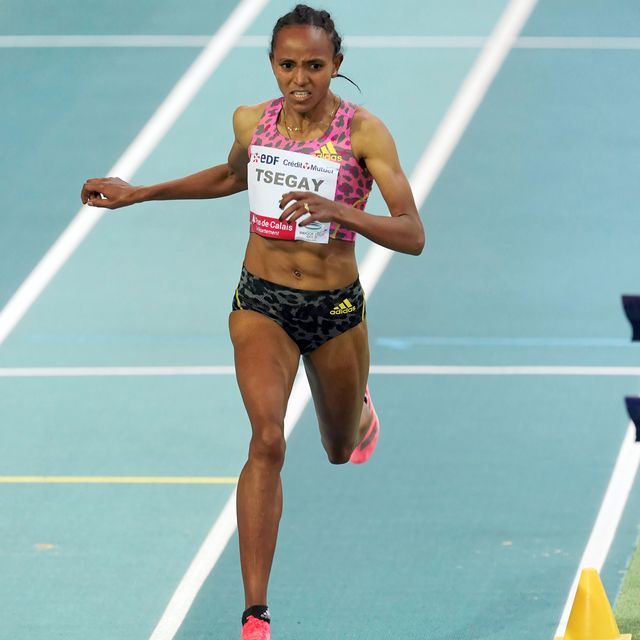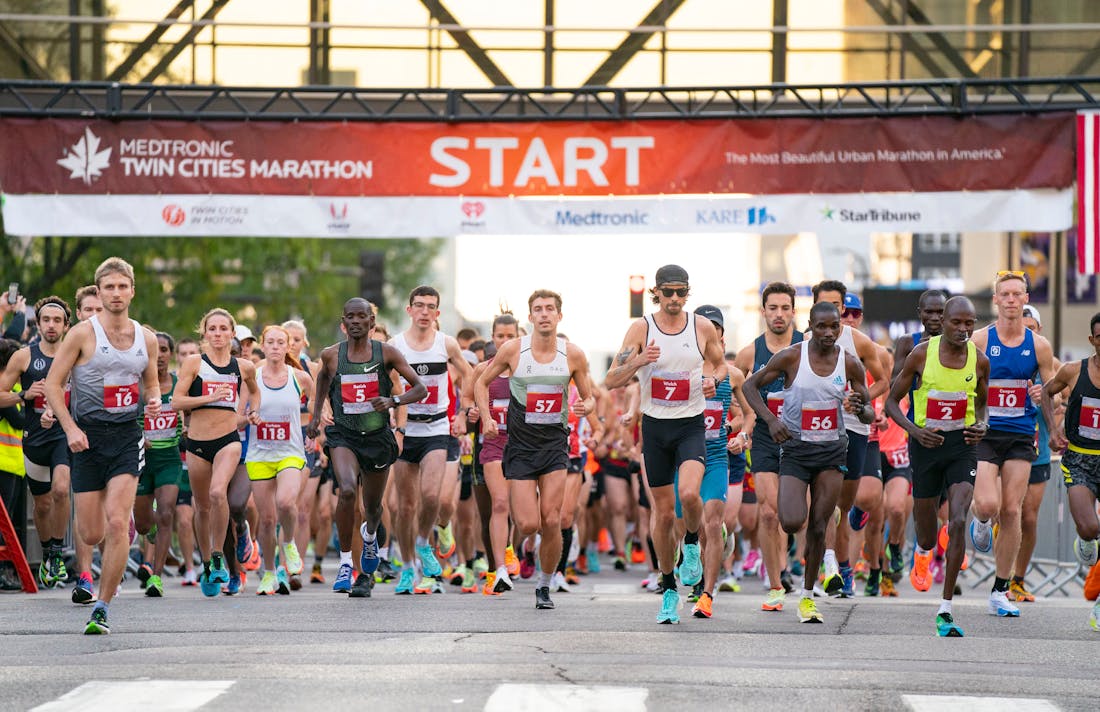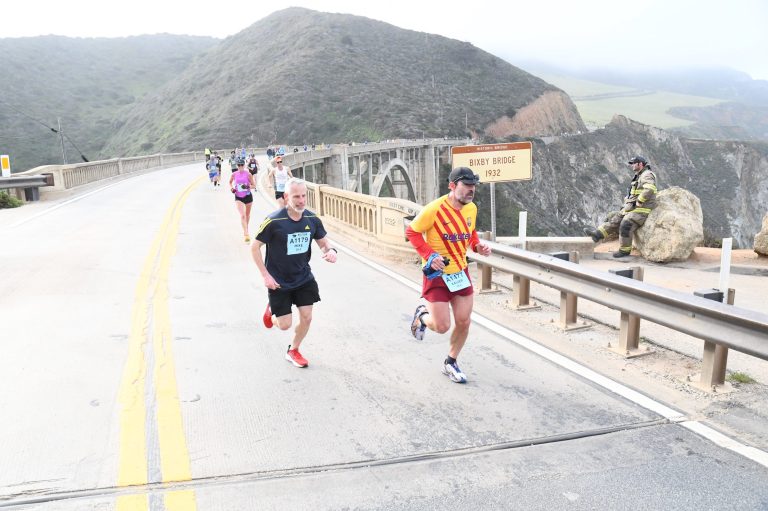What’s a Professional Runner?
A professional runner is someone who earns a living by running competitively in races and events. Professional runners are individuals who earn their livelihood by competing in races and events.
They dedicate their lives to the sport of running and train rigorously to achieve peak performance. Professional runners can be found competing in a variety of events from track and field to marathons and ultra-marathons. They often have sponsors and endorsements which contribute to their income and provide them with the necessary resources to continue competing.
Professional runners must have a deep passion for the sport and a commitment to excellence to succeed. We will explore what it takes to become a professional runner and the challenges faced by those who pursue this career path.
Qualities Of A Professional Runner
A professional runner is an athlete who has dedicated their time, effort, and energy to become the best in their sport. Professional runners compete at the highest level in national and international competitions, winning medals and breaking records. To achieve this level of success, professional runners possess several qualities that enable them to excel in their sport. These qualities include endurance, speed, and mental toughness.
Endurance
Endurance is an essential quality for professional runners. It is the ability to sustain physical effort and maintain a high level of performance over an extended period. To develop endurance, professional runners engage in long-distance training that builds their cardiovascular system and increases their muscle power. When running long distances, a professional runner maintains a consistent pace and knows how to conserve energy while preparing for the final push.
Speed
Speed is undoubtedly one of the most critical qualities that a professional runner must possess. It involves running at a fast rate and covering a distance in a short time. Professional runners have the speed and agility necessary to adjust their pace to meet specific race conditions. Speed develops with constant practice and by incorporating sprint intervals in their training routine.
Mental Toughness
Mental toughness is a crucial quality for professional runners. It helps them stay focused and determined throughout training and during races. Professional runners must overcome mental barriers that might prevent them from completing a race. They must be resilient and push through exhaustion, pain, and negative thoughts. To develop mental toughness, professional runners use visualization techniques and practice mindfulness to help them stay focused on their goals.
In conclusion, a professional runner is an athlete that has developed endurance, speed, and mental toughness through their training and commitment. These qualities coupled with physical strength, a healthy diet, and adequate rest help professional runners maintain their performance in high-level competitions.
Credit: www.runnersworld.com
Training For Professional Running
Training for professional running requires more than just running aimlessly. Professional runners have a structured training plan that includes multiple aspects of fitness, including building endurance, interval training, and strength training. These three factors contribute to an athlete’s ability to improve their performance in races and prevent injury.
Building Endurance
Building endurance is an essential aspect of successful professional running. Professional runners need to have the ability to run long distances without becoming fatigued quickly. To build endurance, runners need to take a consistent and gradual training approach. Increasing weekly training mileage by no more than 10% is key to preventing overuse injuries. Additionally, adding tempo runs, long runs, and easy recovery runs help build endurance and stamina. These runs should be spaced out throughout the week to prevent burn-out.
Interval Training
Interval training is a vital component of a professional runner’s training plan. Interval training is the practice of high-intensity effort followed by periods of rest or low-intensity effort. This type of training improves a runner’s speed and endurance while also maintaining energy levels throughout long races. Interval training can be in the form of track workouts, hill repeats, or fartlek runs. These intense workouts should be done once or twice a week with appropriate rest days and a gradual increase in intensity.
Strength Training
Professional runners cannot rely on running alone to build strength in their muscles. Strength training supports a runner’s endurance, helps prevent injury, and enables runners to maintain proper form even in the later stages of a race. Runners should incorporate exercises such as squats, lunges, deadlifts, and core strengthening into their routines. These exercises should be done under the guidance of a personal trainer or coach to ensure proper form and minimize the risk of injury.
Professional running requires dedication, consistency, and patience when it comes to training. Building endurance, interval training, and strength training are just a few pieces of the puzzle that make up a complete training plan for professional runners. With the right combination of factors, a runner can improve their performance and achieve their goals.
Challenges Faced By Professional Runners
Professional runners are individuals who participate in competitive races for a living. While the sport comes with its own sense of freedom, it is certainly not without its challenges. In this article, we will discuss some of the challenges faced by professional runners such as injury risk, competition, and performance anxiety.
Injury Risk
Professional runners are at high risk of experiencing a variety of injuries. Due to the repetitive nature of running, overuse injuries such as shin splints, stress fractures, and tendonitis are common. Additionally, sudden movements or twists can lead to pulled muscles or ligament damage. These injuries can leave runners with limited mobility and forced to take time off from their training and competition schedule.
Competition
The competition for professional runners is intense. Unlike recreational runners, professional runners have to face more challenges such as physical, mental, emotional, and social challenges. Training plans need to be optimized for every race, and the smallest improvement can mean the difference between winning or losing. The constant pressure to perform at an elite level in every race can lead to extreme stress and anxiety.
Performance Anxiety
Performance anxiety is a common challenge that professional runners face. It is the fear of not being good enough, the fear of failure and the fear of the unknown. Runners may experience anxiety before their races, which can cause them to underperform. This anxiety can affect their training and confidence leading up to the race, causing a negative impact on their overall performance.
Professional runners face a lot of challenges. The competitive nature of the sport, injury risks, and performance anxiety are just some examples. However, with proper training, preparation, and mental toughness, these challenges can be overcome. Professional runners must continuously challenge themselves to become better, but they also need to listen to their bodies and be mindful of their limits to avoid burnout and injury.

Credit: m.youtube.com
Rewards Of Professional Running
Professional running is becoming increasingly popular, with more athletes choosing this as their career path. While the rigorous training and grueling races may seem daunting, the rewards of professional running can be equally exhilarating. These include:
Endorsement Deals
Professional runners have the opportunity to secure endorsement deals with various brands. These brands are usually in the fitness or sports sector, and the runners are required to promote the brand through running events, social media, or advertisements. These deals can be lucrative and can help the runners financially, enabling them to focus on their training and racing.
Trophy Prizes
Winning races and competitions can result in trophy prizes for professional runners. These trophies are a tangible reward for their hard work and accomplishments, and they can range from small medals to large trophies made of precious metals. These prizes not only give runners a sense of pride and achievement, but they also serve as a reminder of their dedication and hard work.
Personal Growth
Professional running can lead to significant personal growth for athletes. Training for and competing at an elite level requires a high level of mental and physical discipline, goal setting, and self-motivation. These skills are not only relevant to running, but they can also translate into other areas of life, such as work and personal relationships. Professional runners also get to travel to different countries and cities, experience different cultures, and interact with people from different backgrounds. This exposure broadens their perspective and enhances their personal growth.
Professional running can be a challenging career, but the rewards of endorsement deals, trophy prizes, and personal growth make it a worthwhile pursuit for many athletes.

Credit: www.startribune.com
Frequently Asked Questions For What’s A Professional Runner?
What Does It Mean To Be A Professional Runner?
Being a professional runner means making a living from running, through sponsorships, competitions, and performances. They train rigorously, set goals and targets, and work with coaches and trainers to improve their performance. They also have to maintain a certain level of fitness and physical endurance.
How Do You Qualify As A Professional Runner?
To qualify as a professional runner, you need to meet certain criteria. This includes regularly competing in races, achieving fast times, and receiving recognition from official governing bodies. Additionally, you may need a sponsorship from a sports brand or team.
It takes hard work, dedication, and talent to become a professional runner.
Do You Get Paid To Be A Professional Runner?
Yes, professional runners do get paid for their participation in competitions as well as for endorsement deals with sponsors. However, the amount they receive varies depending on their level of success and popularity.
Conclusion
All in all, a professional runner is someone who takes running seriously and dedicates their time and effort to improve their performance. A professional runner knows that success comes through consistent hard work and commitment. By setting goals, following a proper training program, and taking care of their body, a professional runner can achieve their full potential.
Becoming a professional runner may not be easy, but with the right mindset and support, it is possible to excel in this highly rewarding sport. Keep pushing forward and always aim for your personal best.







